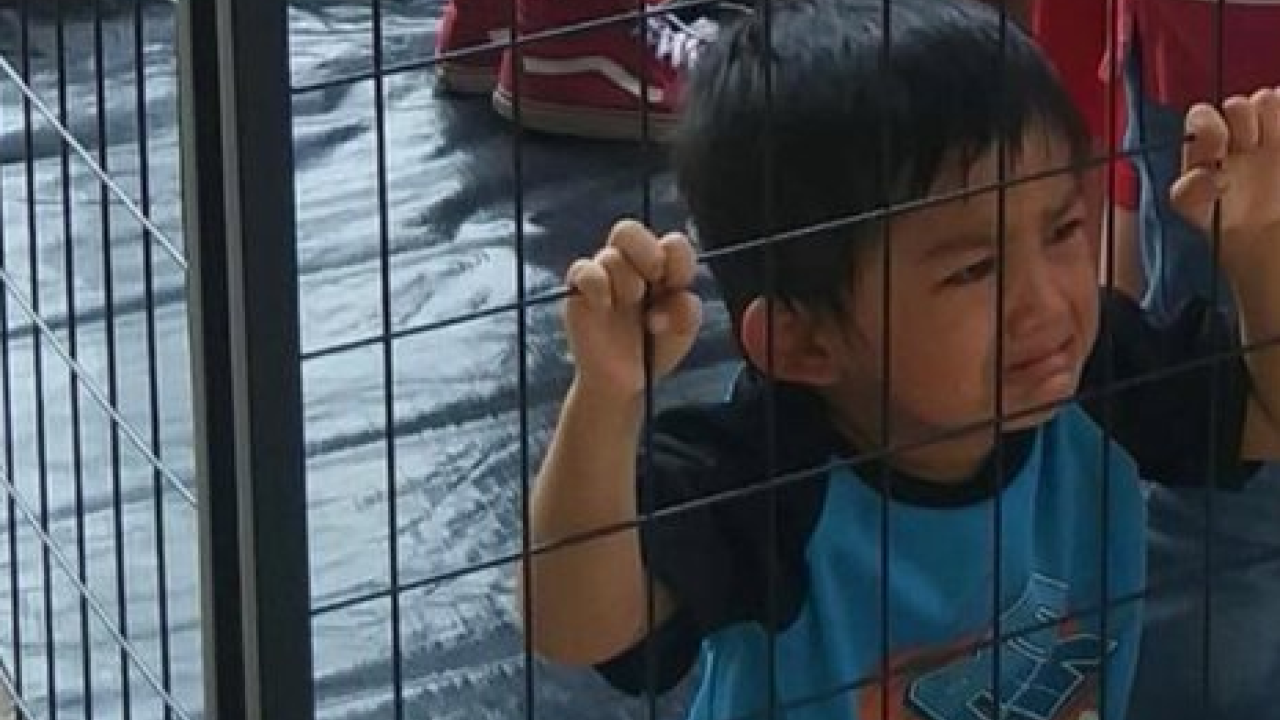Episode 01: Armando’s Story/ A Human Story
By Addyson Peters
Over the past decade U.S. immigration policy has cleared the way for private detention centers across the country to both proliferate and increase in size. Kern County, which resides at the southern tip of California’s San Joaquin Valley, offers a classic example of the dynamics surrounding the nation’s private detention centers, with its Mesa Verde facility in the city of Bakersfield. According to GEO, Mesa Verde can hold up to four hundred detainees at a time.
Up until the end of May 2020, Armando was one of those detainees.
Armando was born in Mexico, but has spent the vast majority of his life in the United States. While in the U.S. he was granted asylum through the Convention Against Torture (CAT) agreement because it was not safe for him to return to Mexico. He has had family members kidnapped and mutilated by Mexico’s cartels. Recently, his brother was confused for Armando, which led the cartel to kidnap and almost kill him. These and other developments make it clear that it would be unsafe for Armando to return to Mexico.
While Armando has won asylum hearings twice in immigration court, changes to immigration policy made by the Trump Administration have made these decisions null and void. For example, being convicted of even a minor offense can derail asylum applications. Due to developments like these, Armando’s lawyer appealed his case to the United States Court of Appeals for the Ninth Circuit, hoping that this would lead to his release. Unfortunately, this process can take months or even years.
While waiting to hear about his appeal, Armando was detained in Kern County and sent to the Mesa Verde detention center, where he would spend the next twenty-four months. Deprived of his family and friends, Armando has been able to survive emotionally and psychologically with the help of KWESI (Kern Welcoming and Extending Solidarity to Immigrants), his Bible study group, and the hope that he would one day be reunited with his family.
When Armando first arrived at Mesa Verde, there were less than five members of the Bible study group which was organized and led solely by the detainees. While held there, Armando was able to get the group to expand to well over twenty members. Armando and others found that by participating in this Bible study group, and through faith, that they could remain positive. The group was made up of individuals from the Congo, Israel, North Korea, Nicaragua, Honduras, Guatemala, and Russia. They would have daily lessons and pray for peace within Mesa Verde. Armando often preached and translated for the group.
Outside of the Bible study group, Armando was also a caretaker and, effectively, a social leader in Mesa Verde. He often looked out for and helped the most vulnerable. For example, Armando assisted a blind fellow detainee. This was his main daily task and how he was able to find his purpose in Mesa Verde.
Although Armando made the best of his situation, Mesa Verde is not a place that GEO likes to describe in its brochures, or on its web page. According to Armando, prescription drugs were handed out daily to about half of the detainees. As a result, many were left in a “docile” state. Additionally, Armando was often called derogatory names by the guards as a way of trying to get him to act out. If he did lash out, then they would write him up which would have negative repercussions to his appeals process. This serves GEO’s interests because the longer people like Armando are in detention the more money they make. Due to this dynamic – which all detainees understand – Armando did his best to stay out of trouble. Regardless, Armando still lived in fear every day as he was in a helpless situation within the crowded, concrete walls of Mesa Verde.
Armando maintained his belief that one day he would be released and reunited with his family, but days turned into weeks, and weeks into months. While there, Armando attended programs, such as art therapy and AA, but eventually these programs were taken away from the detainees. In addition, there were no classes offered at Mesa Verde which made time move even slower for the detainees. Nevertheless, Armando made the best of a frustrating position and continued to work toward his goals. Armando’s goals are not all that different from the goals most of us have in our lives: to set a good example for the younger generation and to encourage them to be the best version of themselves.
Unfortunately, as is the case with many other immigration detainees in the United States, Armando has been a victim of abuse by ICE.
In an interview I did with Armando, he conveyed to me that on March 8, 2019, he was taken from Mesa Verde to the ICE office and told by agents to sign a document. The document was used as a basis for his impending deportation and signing this document would show that Armando agreed to be deported; therefore, Armando declined. The agents then ordered Armando to sign the forms. He declined again. It was at this moment that the agents forcibly and painfully pulled his arms behind his back and forced his head down in order to coerce him into signing the form.
Armando stated that when he again declined, for the third time, the agents grabbed his right hand, put his index finger on the ink blotter, and forced him to stamp the form against his will. Armando was then informed that he was to be deported the next day. Luckily, his wife was able to contact his attorney about the situation after hearing from Armando. This allowed his attorney to intervene and stop the deportation order. Stories and practices similar to these occur much too often in detention centers and in ICE offices across the United States; however, many detainees do not have the necessary legal representation. Thankfully, Armando did.
Armando spent twenty-four months at Mesa Verde until, after a long legal fight, he was finally released on May 29, 2020.
Now free, Armando spends his days working on his artwork, reading his Bible, and loving and caring for his family and those around him. He also frequently talks to current detainees on the phone. It is through these calls that Armando is able to provide spiritual guidance and words of encouragement. Additionally, Armando has become a very active member in the community by participating in protests in order to use his voice on behalf of those who cannot.
Many Americans are not informed about what occurs in detention centers like Mesa Verde which is why stories such as Armando’s are important to share. Fortunately, even with the hardships Armando faced, he stayed positive and his spirit remained unbroken while at Mesa Verde. However, when compared to other detainees, Armando’s story is rare and unfortunately, many detainees are not as lucky. Although Armando managed to return to his family in the United States, it is important that we do not ignore the injustices he suffered and many others continue to suffer to this day.


